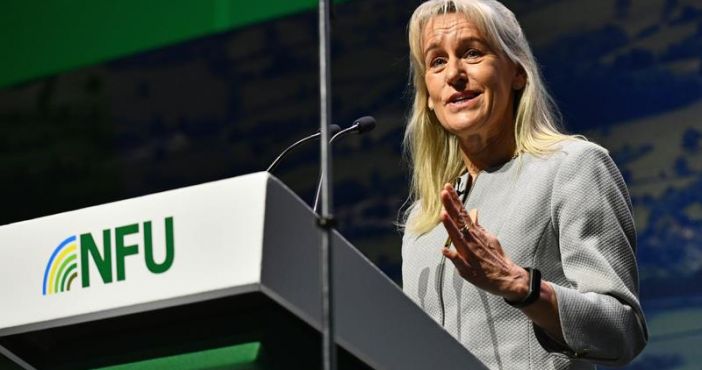NFU president Minette Batters said the Government’s decision to halt trade deal negotiations with Canada, amid an ongoing dispute over beef and cheese was the right thing to do.
The negotiations after the UK refused to conceded Canada’s calls for the UK to relax a ban on hormone-treated beef, effectively shuts Canadian producers out of the market. The UK was also unhappy about 245% import taxes Canada put at the start of the year on British cheese, the BBC reports.
A UK government spokesperson said: “We have always said we will only negotiate trade deals that deliver for the British people. And we reserve the right to pause negotiations with any country if progress is not being made.
“We remain open to restarting talks with Canada in the future to build a stronger trading relationship that benefits businesses and consumers on both sides of the Atlantic.”#
The Government’s stance on the deal, which would have opened the UK market up to limited volumes of pork imports, is in contrast to its approach to previous deals, such as Australia and Canada, and has been welcomed within the farming community.
NFU president Minette Batters said the Government ‘was clear on its position regarding food safety, especially after much-criticised deals with Australia and New Zealand’.
“The government’s decision to walk away from trade talks aimed at enhancing the trading relationship between the UK and Canada would have been difficult, but it’s the right decision,” she said.
“On products such as beef and cheese, Canada was demanding too much and offering too little, therefore preventing progress to the benefit of both countries.”
“During those negotiations, we understand that Canada made repeated attempts to force the UK to change its food safety rules and to extract unreasonable concessions for maintaining our preferential access to its cheese market.
“While there is give and take within every trade deal, the UK Government has been clear that lowering the UK’s high standards of food safety is not an option, in these and all negotiations. This position is wholeheartedly supported by the NFU and also the million members of the public who signed our petition to safeguard British food standards in 2020.
“We have always urged the UK Government to secure balanced trade agreements that benefit both British consumers and British producers, and to avoid bad deals that give away too much for the sake of getting a deal over the line. I’m pleased the government seems to be following that approach.”
Last year, the UK exported £198.1 million worth of food to Canada, with cheese being one of the top products. While Canada exported food worth £557.7 million to the UK, with wheat and maize at the top.
Canada had allowed tariff-free British cheese imports under a temporary ‘roll-over’ arrangement agreed when post-Brexit trade rules came into effect, but that expired on December 31, 2023.
As of 1 January 2024, UK cheese was moved out of the quota reserved for ‘EU use’, and into a much smaller quota, which is routinely filled to its capacity and means UK producers will be competing against many more global exporters and subject to prohibitive import taxes, the NFU said. .
The UK is expected to accede to the CPTPP in the second half of 2024. Under the UK–CPTPP FTA agreement, the UK can then trade on preferential terms with members of the CPTPP, which includes Canada, but only if those individual members agree to do so.
This means that unless Canada agrees, the UK will not automatically regain access to the Canadian cheese market, AHDB reports.




